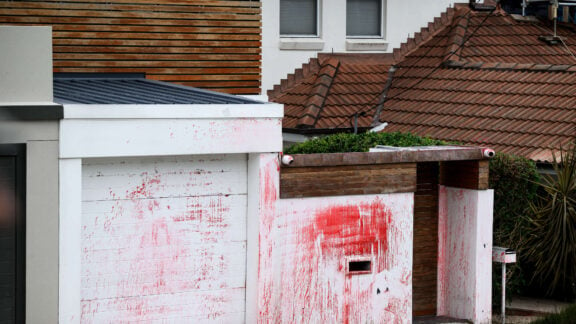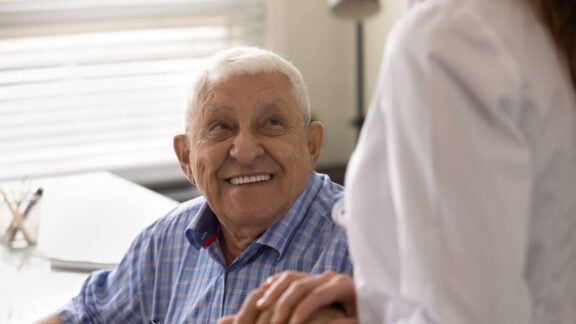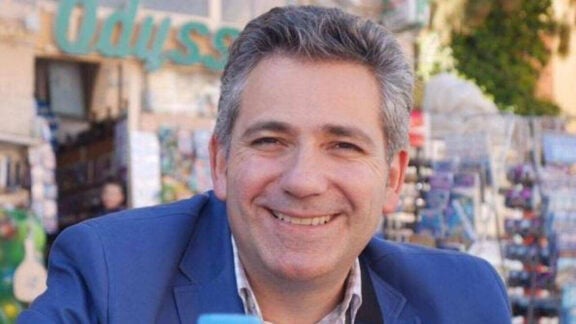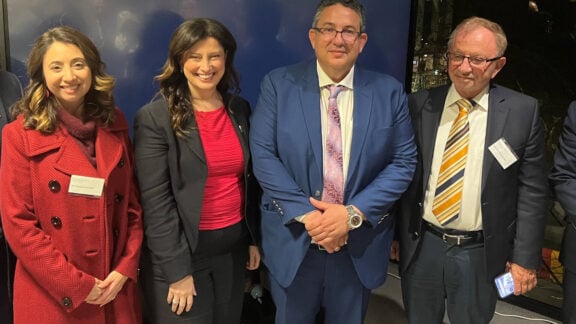Greek government sources have told the Athens Macedonian News Agency that Ukraine’s President, Volodymyr Zelensky will address the Greek parliament next week via teleconference.
Details of the arrangement are still being finalised, and while not confirmed yet, the address is expected to take place either on Wednesday or Thursday.
Ukrainian Ambassador to Greece Sergii Shutenko will reportedly be received by President of the Hellenic Parliament Constantine Tassoulas on Monday to settle on the date.
Greece’s people have shown solidarity and sympathy towards the plight of Ukrainians from day one of the Russian invasion, and the Greek government has taken a clear side in the conflict, a fact that has not gone unnoticed by Mr Zelensky.
“There can be no equal distances. You are either with peace and international law, or against them,” PM Kyriakos Mitsotakis had said after announcing a shipment of medicine and lethal aid to Ukraine earlier in the month.
During a speech to the Italian parliament on Tuesday, the Ukrainian leader expressed his gratitude specifically to Greek Foreign Minister Nikos Dendias.
“He is the first European official who has decided to support the work of the humanitarian corridors to Mariupol, in order to save our people in the city and transport humanitarian aid, which is very important for everyone there,” he said.
Mr Zelensky has built a reputation for giving emotive speeches which end with standing ovations by the members of the parliament he addresses each time.
President Zelensky thanks Sweden for its wholehearted support, receives a standing ovation in the Swedish Parliament. pic.twitter.com/oe1OkgcDQZ
— Jan Thesleff (@SwedensAmbIndia) March 24, 2022
And according to some analysts, there is a Greek connection underlying the pattern.
The rhetorical techniques deployed over the past month by the Ukrainian President have been likened to the ones used by Aristotle more than 2,000 years ago.
References to the audience-centered speechmaking of Mr Zelensky as inspired by the ancient Greek philosopher, have appeared in Forbes, New York Times and the Washington Post in recent weeks.
Speaking to British media, Bart Cammaerts, a London School of Economics politics and communications professor, broke down the recipe of success for Zelensky’s “media-savvy” speeches to three key elements: ethos, pathos and logos.
"Come out of your offices & homes, show your support to the Ukrainian people".
A powerful message from President Zelensky as we mark one month since the invasion.
This Saturday, join us in London to send a message of solidarity & #StandWithUkraine. 💙💛pic.twitter.com/7agCs2x2gz
— Sadiq Khan (@SadiqKhan) March 24, 2022
According to Prof Cammaerts, evoking all three, credibility, emotion and logic, ensures that the Ukrainian leader, much like the Aristotelian method, knows his audience and targets shared values, making his address always personalised.
Addressing the Congress, Mr Zelensky invoked some of America’s darkest days, including September 11 and cited Dr. Martin Luther King’s famous “I Have a Dream”.
A few days later, in his speech for his German audience, he urged Chancellor Olaf Scholz to ‘Tear down this wall’ — a direct reference to US President Ronald Reagan’s famous quote about the Berlin Wall.
And while appearing via video 4,500 miles away from the Canadian parliament in Ottawa, he made sure to make his Canadian listeners feel closer to the Ukrainian reality.
“Justin”, he said addressing the Canadian PM by his first name,
“Can you imagine the famous CN Tower in Toronto, if it was hit by Russian bombs?”
Will Mr Zelensky’s strategy be as successful in striking a chord with the Greek parliament and people next week?
It remains to be seen. What is rather certain though is he will be deploying his well-tested ancient Greek inspired speechmaking skills.









